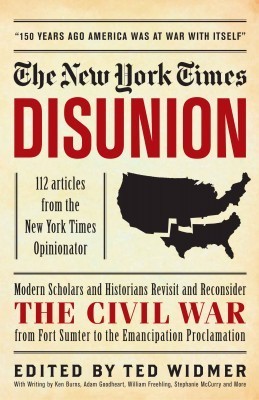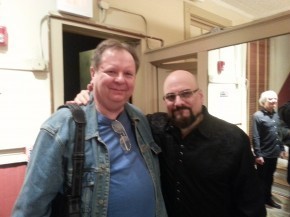Jamie Malanowski's Blog, page 14
May 27, 2013
MISPLACED HONOR
This article was original published in The New York Times on May 26, 2013.
IN the complex and not entirely complete process of reconciliation after the Civil War, honoring the dead with markers, tributes and ceremonies has played a crucial role. Some of these gestures, like Memorial Day, have been very successful. The practice of decorating the graves arose in many towns, north and south, some even before the war had ended. This humble idea quickly spread throughout the country, and the recognition of common loss helped reconcile North and South.
But other gestures had a more a political edge. Equivalence of experience was stretched to impute an equivalence of legitimacy. The idea that “now, we are all Americans” served to whitewash the actions of the rebels. The most egregious example of this was the naming of United States Army bases after Confederate generals.
Today there are at least 10 of them. Yes — the United States Army maintains bases named after generals who led soldiers who fought and killed United States Army soldiers; indeed, who may have killed such soldiers themselves.
Only a couple of the officers are famous. Fort Lee, in Virginia, is of course named for Robert E. Lee, a man widely respected for his integrity and his military skills. Yet, as the documentarian Ken Burns has noted, he was responsible for the deaths of more Army soldiers than Hitler and Tojo. John Bell Hood, for whom Fort Hood, Tex., is named, led a hard-fighting brigade known for ferocious straight-on assaults. During these attacks, Hood lost the use of an arm at Gettysburg and a leg at Chickamauga, but he delivered victories, at least for a while. Later, when the gallant but tactically inflexible Hood launched such assaults at Nashville and Franklin, Tenn., his armies were smashed.
Fort Benning in Georgia is named for Henry Benning, a State Supreme Court associate justice who became one of Lee’s more effective subordinates. Before the war, this ardent secessionist inflamed fears of abolition, which he predicted would inevitably lead to black governors, juries, legislatures and more. “Is it to be supposed that the white race will stand for that?” Benning wrote. “We will be overpowered and our men will be compelled to wander like vagabonds all over the earth, and as for our women, the horrors of their state we cannot contemplate in imagination.”
Another installation in Georgia, Fort Gordon, is named for John B. Gordon, one of Lee’s most dependable commanders in the latter part of the war. Before Fort Sumter, Gordon, a lawyer, defended slavery as “the hand-maid of civil liberty.” After the war, he became a United States senator, fought Reconstruction, and is generally thought to have headed the Ku Klux Klan in Georgia. He “may not have condoned the violence employed by Klan members,” says his biographer, Ralph Lowell Eckert, “but he did not question or oppose it when he felt it was justified.”
Not all the honorees were even good generals; many were mediocrities or worse. Braxton Bragg, for whom Fort Bragg in North Carolina is named, was irascible, ineffective, argumentative with subordinates and superiors alike, and probably would have been replaced before inflicting half the damage that he caused had he and President Jefferson Davis not been close friends. Fort Polk in Louisiana is named after Rev. Leonidas Polk, who abandoned his military career after West Point for the clergy. He became an Episcopal bishop, owned a large plantation and several hundred slaves, and joined the Confederate Army when the war began. His frequently disastrous service ended when he was split open by a cannonball. Fort Pickett in Virginia is named after the flamboyant George Pickett, whose division was famously decimated at Gettysburg. Pickett was accused of war crimes for ordering the execution of 22 Union prisoners; his defense was that they had all deserted from the Confederate Army, and he was not tried.
Other Confederate namesakes include Fort A.P. Hill in Virginia, Fort Rucker in Alabama and Camp Beauregard in Louisiana. All these installations date from the buildups during the world wars, and naming them in honor of a local military figure was a simple choice. But that was a time when the Army was segregated and our views about race more ignorant. Now African-Americans make up about a fifth of the military. The idea that today we ask any of these soldiers to serve at a place named for a defender of a racist slavocracy is deplorable; the thought that today we ask any American soldier to serve at a base named for someone who killed United States Army troops is beyond absurd. Would we have a Fort Rommel? A Camp Cornwallis?
Changing the names of these bases would not mean that we can’t still respect the service of those Confederate leaders; nor would it mean that we are imposing our notions of morality on people of a long-distant era. What it would mean is that we’re upholding our own convictions. It’s time to rename these bases. Surely we can find, in the 150 years since the Civil War, 10 soldiers whose exemplary service not only upheld our most important values, but was actually performed in the defense of the United States.
APPLE: LIVING THE LIE
This was first published on The Washington Monthly’s site on May 25, 2013.
I have three laws of politics. I don’t know if they explain everything, but they often explain something, and that’s enough for me.
Malanowski’s First Law of Politics is that the rich and powerful will always act in their own self interest.
Malanowski’s Second Law is that the rich and powerful will then get the rest of us to act in their interest as well, usually by making us believe that we hold this interest in common.
Malanowski’s Third Law is that when the rest of us figure out ways to act in our own self-interests, the rich and powerful are likely to outlaw whatever we’ve come up with.
These laws came to mind this week when reading about the appearance of Tim Cook, the CEO of Apple, before the Senate Permanent Subcommittee on Investigations. The Senators—a couple of them, anyway—wanted to hear about how Apple avoids paying so much tax. Cook, for his part, wanted to talk about how Apple actually pays so much tax.
As Floyd Norris explained in the Times, “What Apple did was transfer rights to its intellectual property to a subsidiary that was incorporated in Ireland — and therefore not subject to immediate United States taxation — but managed in California. Under Irish law, that freed the subsidiary from Irish taxation.”
In other word, Apple uses an artificial company to avoid taxes. Apple, in its defense, points out that this Irish subsidiary has rights to the company’s patents and trademarks in Asia, Africa and Europe, but not in North or South America. “Apple kept those rights in its United States operation,” says Norris, “It thus appears to pay more United States taxes than it could have.” So Apple uses sham company—and is a hero.
“Apple doesn’t use gimmicks,” Cook argued. He’s right, and that’s just the point. He doesn’t have to use gimmicks. The whole system has been gimmicked for him.
Were you or I ham-handed enough to invent something to avoid paying taxes—invent a child say, or identify a Irish business associate as a dependent—we would face prosecution. Apple sets up an Irish front, and it enjoys the support of legislators, judges, tax attorneys, accountants, and other high-minded people everywhere. Apple isn’t rigging the game; it’s playing a game that has been rigged for them—and against the broad middle class.
POP UP SUCCESS
 Here is my new article in Success magazine, about chef Ryan Umane, and the pop up restaurant phenomenon:
Here is my new article in Success magazine, about chef Ryan Umane, and the pop up restaurant phenomenon:
The intersection of 79th and Third is close to the bull’s-eye center of Manhattan’s Upper East Side, whose residents are as rich, glamorous and well-fed as those of any piece of terra firma.
Standing there on a frigid January night, one could wander in any direction, and before going a mile not help but fall into a world-class restaurant: Daniel, Ladurée, Sasabune, Luke’s Lobster, Café Boulud, Campagnola, Caravaggio, Uva—you can’t make a mistake.
But for our delicious meal tonight, instead of going north, south, east or west, we are going straight up, ascending 11 stories to the apartment of Ryan Umane. He’s a 28-year-old up-and-coming chef who has grabbed his spatula and cast-iron frying pan and joined the pop-up restaurant movement. Testaments to culinary and entrepreneurial innovation, pop-ups first blossomed as a fad some five years ago, then became a wave, and now show every sign of sticking around as a thriving alternative to the traditional restaurant experience.
Pop-up is a phenomenon of loose parameters. Purists reserve the term for the most evanescent of the species, the small place with a haphazard ambience but a molto delizioso cuisine that shows up in an empty storefront one day but is likely to be gone the next, unless it turns into a whopping success. Ad Hoc in Napa, for instance, started as a placeholder restaurant but was so popular it became a brand, spinning off a cookbook and a fried chicken mix.
(To read the rest, click here.)
DISUNION BETWEEN THE COVERS
 With a lovely party at the handsome Greenwich Village apartment of Times editor rish Hall, editors George Kalogerakis and Clay Risen of the Opinionator section, a number of their colleagues, and a bunch of us who contributed to the paper’s Disunion series, celebrated the publication of Disunion, a collection of articles from the series, published by Black Dog and Leventhal. Two of my pieces appear, and George mentioned me in the acknowledgements. In the words of Van Morrison, that’s all I want, that’s all I need, I’m satisfied.
With a lovely party at the handsome Greenwich Village apartment of Times editor rish Hall, editors George Kalogerakis and Clay Risen of the Opinionator section, a number of their colleagues, and a bunch of us who contributed to the paper’s Disunion series, celebrated the publication of Disunion, a collection of articles from the series, published by Black Dog and Leventhal. Two of my pieces appear, and George mentioned me in the acknowledgements. In the words of Van Morrison, that’s all I want, that’s all I need, I’m satisfied.
May 23, 2013
TAXING SITUATION
The more I learn about the so-called IRS tax scandal, the more I pity the IRS. When this story broke, the story was billed as President Obama was using the IRS against his political enemies. Well, that’s a bad thing! It was so reminiscent of Richard ordering the IRS to go after his political enemies, like Paul Newman and Tony Randall. Think of it—Nixon taking on Felix Ungar. That seems as simple, and as impeachable, as anything.
Time will eventually what all the facts are, and perhaps Obama will be proven guilty of this charge and dozens of other perfidious deeds. But it doesn’t seem like this will be the case. Let me ask you: when it was first alleged in 1973 or 1974 that Nixon had committed this misdeed, did it seem plausible? Hell, yeah, it did. Tricky Dick? Sure. Now, does it seem Obama could be guilty? Not really. Just watching him, he seems entirely too indulgent of his enemies. He’s got one move: drone ‘em. If he can’t do that, he assumes his holier-than-thou pose, and goes play basketball or something.
It does seem that the IRS may be guilty of anything, it is guilty of using profiling. Forced to make some expedient sense of some 70,000 applications for 50©4 tax status, it seems that the IRS used some kind of filter that puled the applications of people using “Tea Party’’ or “Patriot’’ in their title. Later they broadened the key word search to include progressive and other words. Still, the damage was done.
Profiling, let’s face it, is an act more politically incorrect than criminal. It casts an eye of suspicion over a large group whose members, mostly, have done nothing to merit that kind of attention. It’s a blunt instrument, and like a lot of blunt instruments, it is occasionally effective. But it’s really just not a smart enough way to do things, and should be eliminated as a tool.
At this point, do I think that the IRS has done something morally wrong? The Tea Party is avowedly low-tax. The Tea Party has not distinguished itself by its ability to understand the details of legislation. This law mostly affects political consultants and fat cat donors, not citizens engaged in grass roots politics. As far as I can tell, the IRS was mostly making sure applicants fit the criteria of the law.
So far, my outrage has been mostly contained. What I’m really getting angry about is the tax code itself. It’s not new that there is favoritism in the tax code; now it seems like the whole thing is just a structure of subsidies to special interests. And the poor, despised IRS is like the Internal Affairs division of a politically corrupt police force; all it’s trying to do is enforce the laws other people have passed, among a population that regards you as an enemy.
JUMPY GETS THE GEESE!
Not really. More like Jumpy disturbs the geese. Officially named Vegas, Jumpy Jump Jump is what my granddog is called when Cara visits us from Kentucky. Rousting the geese in Ryder Park is one of her favorite activities. That, and jumping.
May 22, 2013
THE GREAT INSECURITY
 In the Times a couple of weeks ago, Thomas L. Friedman wrote one of the most interesting, alarming, and possibly prophetic pieces I have read this century. Let me quote it at length:
In the Times a couple of weeks ago, Thomas L. Friedman wrote one of the most interesting, alarming, and possibly prophetic pieces I have read this century. Let me quote it at length:
“It’s hard to have a conversation today with any worker, teacher, student or boss who doesn’t tell you some version of this: More things seem to be changing in my world than ever before, but I can’t quite put my finger on it, let alone know how to adapt. So let me try to put my finger on it: We now live in a 401(k) world — a world of defined contributions, not defined benefits — where everyone needs to pass the bar exam and no one can escape the most e-mailed list.
“Here is what I mean: Something really big happened in the world’s wiring in the last decade, but it was obscured by the financial crisis and post-9/11. We went from a connected world to a hyperconnected world. I’m always struck that Facebook, Twitter, 4G, iPhones, iPads, high-speech broadband, ubiquitous wireless and Web-enabled cellphones, the cloud, Big Data, cellphone apps and Skype did not exist or were in their infancy a decade ago when I wrote a book called The World Is Flat. All of that came since then, and the combination of these tools of connectivity and creativity has created a global education, commercial, communication and innovation platform on which more people can start stuff, collaborate on stuff, learn stuff, make stuff (and destroy stuff) with more other people than ever before.
“What’s exciting is that this platform empowers individuals to access learning, retrain, engage in commerce, seek or advertise a job, invent, invest and crowd source — all online. But this huge expansion in an individual’s ability to do all these things comes with one big difference: more now rests on you.
“If you are self-motivated, wow, this world is tailored for you. The boundaries are all gone. But if you’re not self-motivated, this world will be a challenge because the walls, ceilings and floors that protected people are also disappearing. That is what I mean when I say “it is a 401(k) world.” Government will do less for you. Companies will do less for you. Unions can do less for you. There will be fewer limits, but also fewer guarantees. Your specific contribution will define your specific benefits much more. Just showing up will not cut it. ‘’
There is so much about this column that struck me at the core. I do feel that the world is changing far beyond my understanding. It is astonishing that the i-Phone and Facebook and so on have become so amazingly significant in so short a time. I find it bewildering that Twitter has been enthusiastically adopted by so many people; to me, it is like a newfangled dance whose steps I cannot master, choreographed to music I just can’t stand. By extension, it is also amazing that so many things that were once significant are fading away. I’m talking about books, and newspapers, and cinema, but more generally, the idea of cooperation—-cooperation in government, yes, but cooperation in the workplace. The idea that “we’re all in this together’’ seems to mean less, and less, and less.
More now rests on you. This is a frightening thought. The major reason is that I know how very limited I am. However good my best is, I know I am not at my best every day. And however good my average performance is, I know I am not average every day. In the world I lived in most of my life, I was confident that if I hit for a high average, my company would carry me through the rest. If I was in a slump, or ill, or on vacation (there’s a long-gone idea), somebody else at my magazine would be brilliant that week or month, and I would be supportive, and encouraging, and find some other way to contribute as I concentrated on the next cycle. Working in a group, valuing the group—that was important. Apparently that’s not so today.
Think about this quote from Friedman: “What’s exciting is that this platform empowers individuals to access learning, retrain, engage in commerce, seek or advertise a job, invent, invest and crowd source — all online.’’ Does it allow someone to just work? I’m not so sure; I don’t think Friedman is sure. But not everyone wants to live the thrillingly unstable world of the freelancer—going from gig to gig, bobbing along in the current, flush when the money is in and scrimping when it stops. Most people don’t want that. They want a job, a house, health insurance, reasonable security. We’re seeing a world that is being divided between the secure and the insecure, and between those who are insecure and are fine with it, and those who are not. Friedman, a man who is personally very secure, thinks the insecurity is great. I don’t. I see people buying guns and gold, and getting it while they can.
Friedman finds the “more rests on you’’ society exciting. I think it’s scary. It’s a return to Hobbes’ state of nature. It is a return to where there is a war of all against all. “”In such condition there is no place for industry, because the fruit thereof is uncertain, and consequently, not culture of the earth, no navigation, nor the use of commodities that may be imported by sea, no commodious building, no instruments of moving and removing such things as require much force, no knowledge of the face of the earth, no account of time, no arts, no letters, no society, and which is worst of all, continual fear and danger of violent death, and the life of man, solitary, poor, nasty, brutish, and short.”
Hobbes’ state of nature. It is a return to where there is a war of all against all. “”In such condition there is no place for industry, because the fruit thereof is uncertain, and consequently, not culture of the earth, no navigation, nor the use of commodities that may be imported by sea, no commodious building, no instruments of moving and removing such things as require much force, no knowledge of the face of the earth, no account of time, no arts, no letters, no society, and which is worst of all, continual fear and danger of violent death, and the life of man, solitary, poor, nasty, brutish, and short.”
Hyperbolic on my part? The Tsarnaev brothers were recently empowered to access learning online. How exciting was that?
There is a fast-moving kleptopoly that is taking over the world, taking ownership of things that we don’t even necessarily think of as ownable. It’s like when the European colonists came to America and took ownership of a continent whose inhabitants never thought of ownability. Napster just stole the ability of artists to control the sale of their music. Google now controls vast amounts of the world’s public domain books. Some drug company is trying to patent the human genome! When people talk about the exciting world of driverless cars and trucks that just around the corner, well, Brother and Sister Teamster, say goodbye to your job. When people talk about the exciting world of online education, they are actually talking about eliminating and/or cheapening teachers’ jobs.
It’s not that I begrudge the rulers of the universe their cut. Hardly; as Jesus might have said, the rich with you. But for most of my life, the rich took their cut and allowed the rest to dribble down, sustaining the poor and rewarding the rest of us for our industry and bidability. But then came Reagan and Greenspan, and the dogma of the free market. Then came Milken and the takeover artists, who forced business owners to squeeze labor and cut excess and maximize the shareholders’ end. So the rich can keep becoming richer. In April, the Pew Research Center found that from 2009 to 2011, the richest 7% of Americans saw their net worth climb an average $697,651 — equal to a 28% gain—while the rest of the country saw their net worth drop an average $6,079, the equivalent of a 4% loss. The share of wealth held by the top 7% rose to 63% in 2011, up from 56% in 2009. Pew said this disparity is a result of stocks and bonds rallying over these years, while the housing market remained flat.
You have to believe that years from now, this period may be perceived as The Great Digital Con, when fortunes were yanked away, and the moral basis of society was fundamentally altered for the worse. And Thomas Friedman stands to be remembered as its visionary apologist.
I’d be happier with the Leviathan.
LITTLE WARS
 As a toy soldier collector, I was charmed by an article Mark Wallace wrote in the Times about H.G. Wells. His book Little Wars, published in 1913, after Wells “created a set of rules that the `recumbent strategist’ could use in his parlor or garden.” As Wallace tells us, “Wells entertained a number of notable literary and political figures with his diversion. According to Padre Paul Wright of the British Royal Army Chaplains’ Department, who is perhaps the world’s leading authority on Little Wars, G. K. Chesterton and Hilaire Belloc were among Wells’s guests while he was developing the game. “I think it is reasonable to suggest that Chesterton had some war gaming inspiration from Wells when writing The Napoleon of Notting Hill, ” Wright told me in an e-mail, referring to a novel in which toy soldiers play a decisive part. Winston Churchill and Wells maintained a correspondence too, though many of their letters have been lost. Wright wonders whether the two men ever faced off: “We are left with the fascinating prospect of an historical, toy soldier what-if between the two great toy soldier enthusiasts of the period.” Says Wallace “And his own interest in fighting little wars declined sharply with the start of World War I, along with his pacifism; as the violent century wore on, Wells became an advocate of an “armed peace,” with England holding the gun.” Wrote Wells: “You have only to play at Little Wars three or four times to realize just what a blundering thing Great War must be. Great War is at present, I am convinced, not only the most expensive game in the universe, but it is a game out of all proportion. Not only are the masses of men and material and suffering and inconvenience too monstrously big for reason, but — the available heads we have for it, are too small.” In the wonderful drawing from The Illustrated Sunday News, above, Wells is at left.
As a toy soldier collector, I was charmed by an article Mark Wallace wrote in the Times about H.G. Wells. His book Little Wars, published in 1913, after Wells “created a set of rules that the `recumbent strategist’ could use in his parlor or garden.” As Wallace tells us, “Wells entertained a number of notable literary and political figures with his diversion. According to Padre Paul Wright of the British Royal Army Chaplains’ Department, who is perhaps the world’s leading authority on Little Wars, G. K. Chesterton and Hilaire Belloc were among Wells’s guests while he was developing the game. “I think it is reasonable to suggest that Chesterton had some war gaming inspiration from Wells when writing The Napoleon of Notting Hill, ” Wright told me in an e-mail, referring to a novel in which toy soldiers play a decisive part. Winston Churchill and Wells maintained a correspondence too, though many of their letters have been lost. Wright wonders whether the two men ever faced off: “We are left with the fascinating prospect of an historical, toy soldier what-if between the two great toy soldier enthusiasts of the period.” Says Wallace “And his own interest in fighting little wars declined sharply with the start of World War I, along with his pacifism; as the violent century wore on, Wells became an advocate of an “armed peace,” with England holding the gun.” Wrote Wells: “You have only to play at Little Wars three or four times to realize just what a blundering thing Great War must be. Great War is at present, I am convinced, not only the most expensive game in the universe, but it is a game out of all proportion. Not only are the masses of men and material and suffering and inconvenience too monstrously big for reason, but — the available heads we have for it, are too small.” In the wonderful drawing from The Illustrated Sunday News, above, Wells is at left.
April 22, 2013
WHO’S DOING THE TERRORIZING?
A version of this article first appeared in The Washington Monthly on April 21, 2013.
Apparently on Friday, before Dzhokhar Tsarnaev was apprehended, Sen. Lindsey Graham was already torquing up the hysteria by taking the position that Tsarnaev not receive his Miranda warning before being interrogated. Graham—who, not to imply anything from this, is one of those lucky men who can go into any barbershop and the get the exact look he wants simply by saying, “I’d like the Adolf Hitler haircut”—tweeted “If captured I hope [the] Administration will at least consider holding the Boston suspect as [an] enemy combatant for intelligence gathering purposes.” He then added “The last thing we may want to do is read Boston suspect Miranda Rights telling him to ‘remain silent.’”
The Brothers Tsarnaev will never be known as anything but terrorists, but Boston certainly doesn’t look a town that has been terrorized to me. Defiant? Sure. Inspired? Definitely. There’s a kind of a civic euphoria arising from the realization that town came through this blow with strength and intelligence and courage. From the first responders on Monday, to the individuals who opened their homes to stranded runners, to the full-throated expression of patriotism that infused the way Bruins fans sang the national anthem, to an exemplary performance by the law enforcement authorities, Boston has a lot to be proud of. “This is our fucking city, and nobody’s going to dictate our freedom,” said David Ortiz, the Red Sox’s Big Papi, before a roaring crowd at Fenway Park. They didn’t look terrorized to me.
It’s the Lindsey Grahams who are terrorizing people by suggesting that this threat maybe might possibly be so enormous that we have to deny Dzhokhar Tsarnaev his rights as an American citizen. This is a page straight out of the Bush-Cheney playbook, the idea that we have to start throwing away our most important values and traditions in order to be secure.
It’s nonsense. Denying Dzhokhar Tsarnaev his rights won’t improve my safety. Let’s face it: if I really wanted to improve my safety, I would lose twenty pounds.
April 21, 2013
REVIVING THE BAND
 My friend Dave Jensen and I had a terrific time last Friday night at the Tarrytown Music Hall where we say a program of songs of The Band, performed by Jimmy Vivino, Byron Issacs,
My friend Dave Jensen and I had a terrific time last Friday night at the Tarrytown Music Hall where we say a program of songs of The Band, performed by Jimmy Vivino, Byron Issacs,  Jim Weider, Randy Ciarlante, Amy Helm, and as a special treat, the immortal Garth Hudson, and as a very special treat, Sister Maud Hudson. Maud really shone on her performance of “It Makes No Difference,” and Garth’s playing was jaw-droppingly spectacular. I especially liked hearing “`King Harvest (Has Surely Come),” “This Wheel’s On Fire,” and “Rockin’ Chair”. Again, thanks to Mr. Vivino for the tickets.
Jim Weider, Randy Ciarlante, Amy Helm, and as a special treat, the immortal Garth Hudson, and as a very special treat, Sister Maud Hudson. Maud really shone on her performance of “It Makes No Difference,” and Garth’s playing was jaw-droppingly spectacular. I especially liked hearing “`King Harvest (Has Surely Come),” “This Wheel’s On Fire,” and “Rockin’ Chair”. Again, thanks to Mr. Vivino for the tickets.



